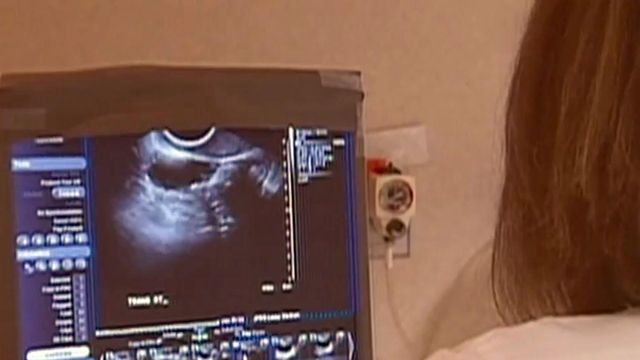Cooper vetoes 'born alive' abortion bill
Gov. Roy Cooper on Thursday vetoed a bill that requires doctors to provide the same care to an infant that survives an abortion as they give any other newborn.
Posted — Updated"Laws already protect newborn babies, and this bill is an unnecessary interference between doctors and their patients," Cooper said in his veto statement. "This needless legislation would criminalize doctors and other health care providers for a practice that simply does not exist."
"Caring for a living, breathing newborn infant is too restrictive for Governor Cooper’s radical abortion agenda," bill sponsors Sen. Joyce Krawiec, R-Forsyth, and Rep. Pat McElraft, R-Carteret, said in a joint statement. "We thought Democrats would agree that children born alive should be separate from the abortion debate, but it’s clear that they want the 'right to choose' to even extend past birth. This is a sad day for North Carolina."
The bill is similar to others that have cropped up this year in other states, and Cooper's veto is sure to appear in campaign commercials. Already, both sides were fundraising off the news Thursday, sending email blasts to supporters seeking donations.
The North Carolina Values Coalition sent out a donation appeal titled "Roy Cooper just vetoed babies."
It remains to be seen whether Republicans can muster the numbers needed to overturn Cooper's veto, but it will be difficult. The GOP lost its super-majorities in the House and the Senate in last year's elections and would need to peel off more Democrats to make this bill law.
Senate Bill 359 would have done two things: Made it a felony for doctors to fail to perform life-saving measures on a baby born alive despite an abortion attempt and created a new duty to report these doctors for nurses and other staff.
Mothers would have been immune from prosecution under the bill.
The two sides differed bitterly over what protections these children already enjoy. Brent Woodcox, a staff attorney for the Senate majority, said on Twitter that "deaths of neglect after an attempted abortion are a loophole in our existing criminal laws."
"Was a loophole," Rep. John Torbett, R-Gaston, responded. "We fixed it and the Gov ripped it back open."
Other legal experts, though, have said a newborns are protected by existing state law whether they survived an abortion or were simply born. Senate President Pro Tem Phil Berger said Thursday that, if there's even debate, then the state should "do all that we can" to make it clear.
"There is, at a minimum, a question," Berger, R-Rockingham, said.
Republicans held veto-proof majorities in the legislature for years, though, and could have passed this law before Cooper even took office. The issue came to the forefront in a number of states after similar legislation failed to pass the U.S. Senate in February.
Those opposed to the bill describe it as an unnecessary attempt to stigmatize abortion. Republicans questioned the logic Cooper and other Democrats put forward, asking how the bill could criminalize doctors for a practice Democrats say doesn't exist.
Lt. Gov. Dan Forest, who is seeking the GOP nomination to face Cooper in the 2020 governor's race, said Thursday that it's "a sad day when the governor of any state, no matter the circumstance, chooses to not protect the life of a helpless newborn baby."
The veto was Cooper's first of the 2019 session. He has vetoed 29 bills since taking office at the beginning of 2017, and lawmakers have overridden 23 of them.
This is the GOP's first session without veto-proof majorities in his term, though.
The measure passed in the Senate by a 28-19 margin, with two Democrats voting in favor. It takes three-fifths of those present and voting to override, and Republican leadership can take its time on any override attempts, waiting until a legislative day where attendance favors their side.
In that scenario, supporters would need to keep at lest one Democrat on their side and have the three Republicans who missed Monday night's vote on the bill to be present for an override.
The House voted 65-46 for the bill, with four Democrats voting in favor, five Democrats absent and four Republicans either absent or not voting on the bill.
If all 120 members were present in the House for an override vote, Republicans would have to get their full caucus to vote, keep the four Democrats that supported it the first time and pull another three Democrats to their side to hit the magic number of 72.
Related Topics
• Credits
Copyright 2024 by Capitol Broadcasting Company. All rights reserved. This material may not be published, broadcast, rewritten or redistributed.






